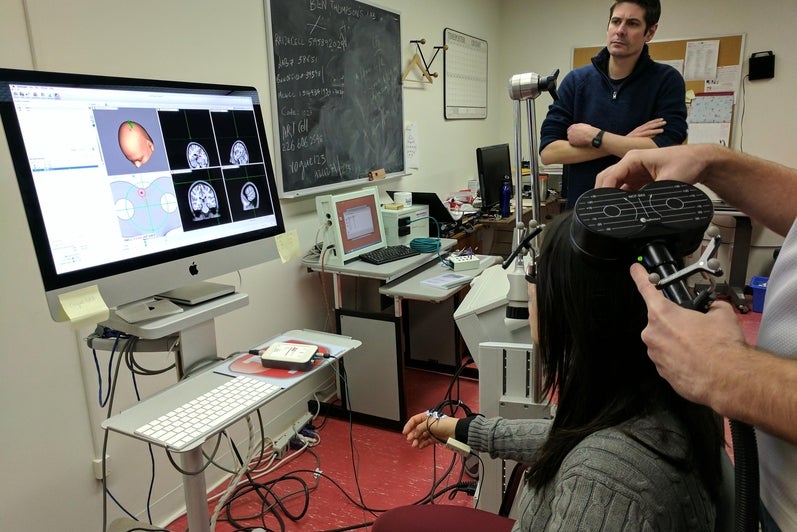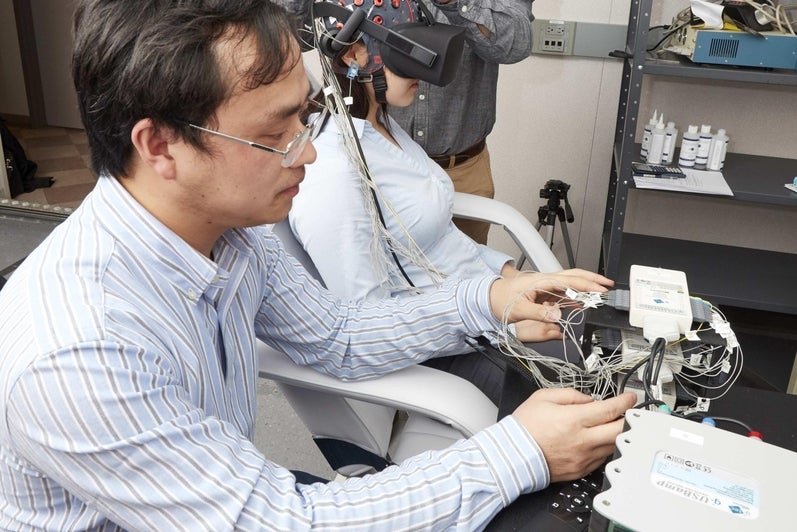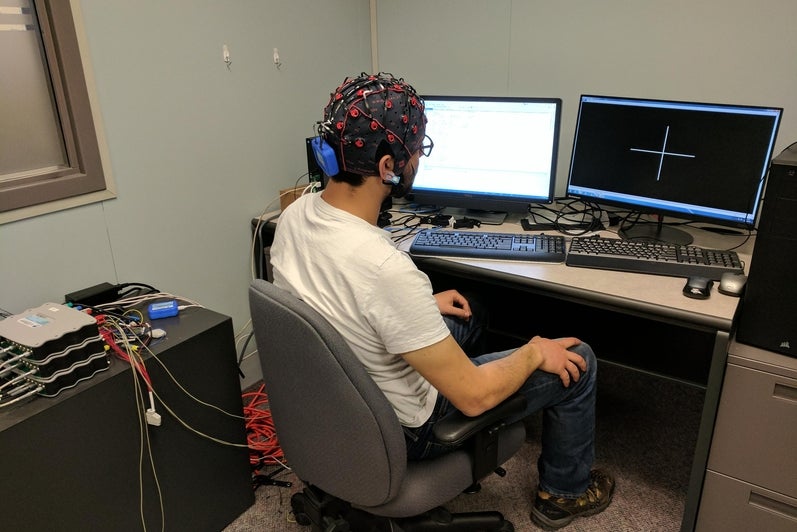Brain-computer Interfaces (BCI) or Brain-machine interfaces (BMI)provide a non-muscular communication and control channel from the brain to the external environment, bypassing the peripheral nervous and muscle systems that we would normally use. The BCI team at the Waterloo Engineering Bionics lab focuses on the generation and decoding of non-invasive brain signals associated with motor/sensory intention, audio and visual attention, as well as virtual reality augmentation. We also investigate how to train BCI users to generate required brain waves so as to achieve high BCI performance. Specifically, we develop processing algorithms for EEG modalities such as movement-related cortical potentials (MRCP), sensory-motor rhythm (SMR) from motor and sensory tasks, as well as steady-state visual evoked potentials (SSVEP).
The main applications of our BCI research are in neurorehabilitation, such as developing treatments for stroke and spinal-cord injury, and Parkinson's Disease. We are currently working with Cognixion to develop a novel BCI for population with special needs, such as non-verbal individuals with Autism Spectrum Disorder (ASD).
Students/research associates currently working on the EEG projects:
- Fatemeh Karimi
- Paul Wolfe
- Aravind Ravi
- Jiansheng Niu
- Hyoowon Lee
- Rui Zhou





